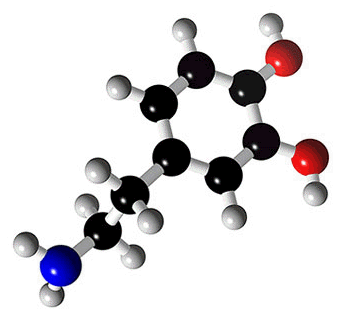Dopamine is a feel-good chemical associated with reward-seeking behaviors. Guess what the search for love is? That's right--a reward-seeking behavior. The most profound reward-seeking behavior humans pursue. Dopamine is generated by our genes. A genetic marker that determines how many dopamine receptors we have in our brains is responsible for some of us seeking the "thrill" of love as much as possible. Not everyone has this genetic marker--so while most people have an average number of dopamine receptors, some of us are programmed to seek the rewards of love on an almost continuous basis.
That doesn't mean you're not content with your current love-relationship, it just means that when in a relationship, you may look for more love rewards--like sex. Hey! Sounds good, right? Wrong.
Compatibility has more to do with genes than Match.com questionnaires can accurately determine. Those of us who are genetic thrill-seekers aren't just hooked on love, we're also more prone to engage in risky behavior, like sky-diving. Or unprotected sex. Those with fewer dopamine receptors need more stimulation to get the same satisfaction as those with a higher number of receptors. It may also explain extroverted behavior.
This moves into why people choose professions like acting, or anything that involves speaking in front of others. And, why those of us who are performers not only choose those jobs, but why we are more prone to depression. Lower dopamine levels can lead to depression. So once the reward has been received, if there isn't another thrill-seeking opportunity available, we feel a serious emotional low. And it's simply because of our genes.
Love isn't an escape hatch for genetics. But looking for love--from lovers, friends, relatives, and others, like an audience or a lecture hall full of students--is a form of escapism from a reality that can feel excessively harsh to people who simply don't have the same number of dopamine receptors. And it's not your mother's fault! It's part of genetic program that has existed for four-million years.
It does beg the question, if one of us with the marker seeks love, is it possible for us to even find it before finding a love-reward? The two are quite different. True love is harder to find than a love-reward, primarily, sex. Though the study done at the University of British Columbia was limited, it's not a stretch to connect the dots: if you need more stimulation to feel the effects of dopamine, your sexual appetite may be a bit more voracious than the average bear.
The caveat is not to let genetics become justification for escaping reality through love, or, love-rewards (or both!). Though I haven't yet jumped out of a plane, it's on my to-do list. I'm happiest when flying 35,000 feet or higher. Euphoric, actually. And yes, my first job was on stage as a comedian. My profession still revolves around performing on stage, and, in the classroom. Along with Geraldo Rivera, I also post selfies of my body (or parts of it) on Facebook and Twitter. And yes, my sexual appetite is seriously amped. Any of this sound familiar to you? If it does, don't panic. Knowledge is power. You may be able to spread yourself on a cracker when looking at that hot 25-year old, but it's what's in your genes that's responsible, not literally in your jeans....
Even with our DNA, less is apparently more.


 RSS Feed
RSS Feed